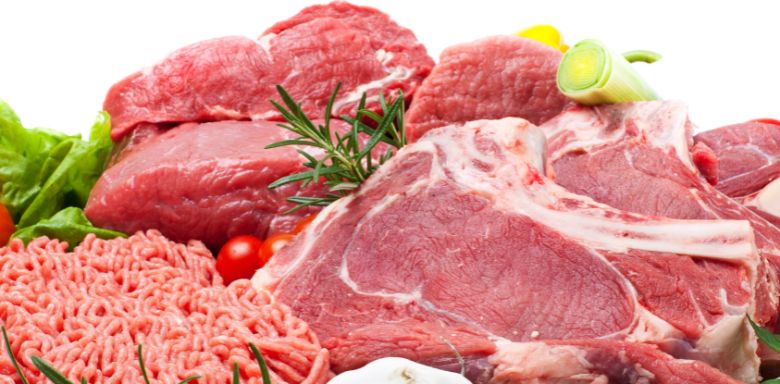Dietary Decisions for Arthritis
Arthritis is a chronic condition characterized by joint pain and stiffness, that can significantly impact your quality of life. Various factors contribute to the development of the condition, and diet plays an essential role in managing its symptoms. Certain foods are known to increase inflammation in the body, leading to increased pain and discomfort in those who suffer from arthritis. In this article, we’ll outline some common inflammation-causing foods to avoid if you have arthritis. Understanding which foods to avoid can help you take steps to reduce inflammation in your body and improve your joint health and overall quality of life.
The Role of Inflammation in Arthritis
There are two different types of inflammation:
- Acute: When your immune system sends inflammatory cells to an area to protect your body from bacteria and viruses, or to help heal from an injury.
- Chronic: When your immune system over-reacts and responds despite no danger being present. Chronic inflammation happens for no reason and persists for a long time or comes and goes frequently. This type of inflammation causes the body to think there is something wrong continuously and causes the immune system to attack your body. Chronic inflammation is common with arthritis. Chronic inflammation is often caused by inflammatory arthritis, which can affect joints throughout the body.
Diet and Inflammation
Inflammation in the body can be impacted by the type of foods you eat. Eating inflammation-causing foods contributes to inflammation in the body and can exacerbate your arthritis symptoms. If you have arthritis you should try to avoid these foods to help better manage your arthritis symptoms.
Worst Foods for Arthritis
Avoiding the worst foods for arthritis can decrease inflammation in your body and help manage your arthritis symptoms. Below are 8 of the worst foods for arthritis:
- Red meat and processed meat: These types of meat are high in saturated fat. Research has found that red meat consumption is associated with higher levels of inflammation, which can lead to increased joint swelling and worsening of arthritis symptoms. Processed meats also contain preservatives which can cause inflammation in the body, which can further worsen arthritis symptoms.
- Processed foods: These foods are high in salt, sugar and unhealthy fats, which can all contribute to increased inflammation in the body and a worsening of arthritis symptoms.
- Fried foods: These foods are typically cooked in oils that are high in omega-6 fatty acids and saturated fat, which are associated with increased inflammation and exacerbation of arthritis symptoms. Additionally, fried foods typically have other ingredients, including salt, sugar and breading which can also contribute to inflammation and increased arthritis symptoms.
- Sugary foods: Eating too much sugar (more than 40 grams) increases inflammation in the body and can worsen arthritis symptoms.
- Dairy: Milk, yogurt, cheese and other dairy products may exacerbate arthritis if they’re full-fat or if they have added sugar.
- Gluten: While gluten doesn’t cause inflammation in everyone, some people with psoriatic arthritis or rheumatoid arthritis may be at a higher risk of gluten intolerance, which can exacerbate arthritis symptoms.
- Refined carbohydrates: Refined carbs such as white bread, white rice, sugary cereals, pasta, chips and pastries may worsen arthritis symptoms because they lack fiber, increase blood sugar levels and are difficult to break down, so your body triggers an inflammatory response to try and remove them from your body. Additionally, refined carbs encourage the growth of inflammatory gut bacteria. While you want to avoid refined carbs, you don’t want to avoid carbs altogether, opt for whole grains and foods rich in fiber such as legumes, fruits and veggies.
- Alcohol: Excessive alcohol consumption has been linked to high levels of c-reactive protein (CRP), which causes acute or chronic inflammation. High levels of CRP in the blood increase inflammation and contribute to arthritis symptoms.
Anti-inflammatory Diet for Arthritis
Consuming an anti-inflammatory diet can have a significant impact on your life if you have arthritis. An anti-inflammatory diet prioritizes whole foods such as fruits, veggies, whole grains, fish, nuts and beans, as well as healthy fats such as omega-3 fatty acids to help reduce inflammation, joint pain and stiffness.
Smart Choices for Arthritis Relief
Arthritis is a chronic condition that can significantly impact your quality of life. While there is no special diet that can cure arthritis, avoiding inflammation-causing foods and replacing them with anti-inflammatory foods, combined with lifestyle changes such as increasing your physical activity level and managing stress, can help lower inflammation in your body, and allow you to better manage your arthritis symptoms.
Article Resources
- What You Need to Know About Food and Inflammation | Arthritis Society Canada
- 12 Foods to Avoid If You Have Arthritis | Verywell Health
- The Best and Worst Foods for Rheumatoid Arthritis (RA) | WebMD
- 8 Inflammatory Foods To Avoid If You Have Arthritis, According To MDs | Women's Health
- 8 Inflammation-Causing Foods to Avoid When You Have Arthritis
